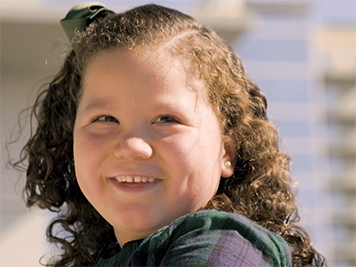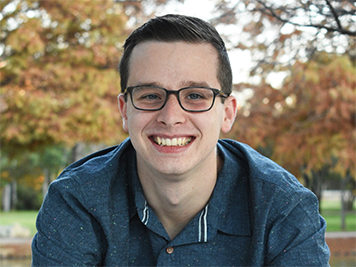Ethan, the eldest son of the family, was born on May 15, 2000. He was compassionate, loving, and genuine, and dreamed of becoming a rap artist. At age six, he started a long journey with a low-grade brain stem glioma.
Ethan’s tumor was discovered after he started having blurry vision, a hard time hearing, and would wake up in the middle of the night vomiting. After he was diagnosed at six years old, he had his first surgery to relieve a buildup of fluid in his brain called hydrocephalus. This surgery left Ethan visually impaired. He later had his first craniotomy and was set up with a treatment plan. He endured 18 months of chemo, ending when he was eight years old.
This process was difficult for his family who had to navigate learning about brain tumors and visual impairment in tandem. They did a lot of research on their own for services to help with modifications at home and school. Ethan didn’t like using a cane, so his family stuck with sighted guides.
Once he was done with treatment, Ethan was able to attend school more often since he no longer had side effects from chemotherapy. He used modifications like enlarged printing for his schoolwork and was able to play with modified card and board games at home.
When he was in fourth grade, Ethan’s school taught him braille, which was much easier as the large print was becoming too difficult for him, and many of his friends at school sight-guided him. He started showing interest in rap music, writing lyrics from age 12 to 17.
“He was very resilient, relentless, determined, and motivated to not let the disease or his blindness stop him from doing as much as he possibly could with his life and enjoying as much as he possibly could with his life. He never gave up. The disease just basically became more than he could fight,” says his mother, Vicki.


